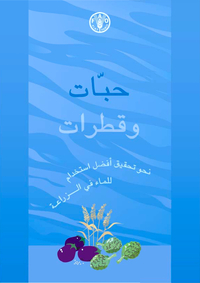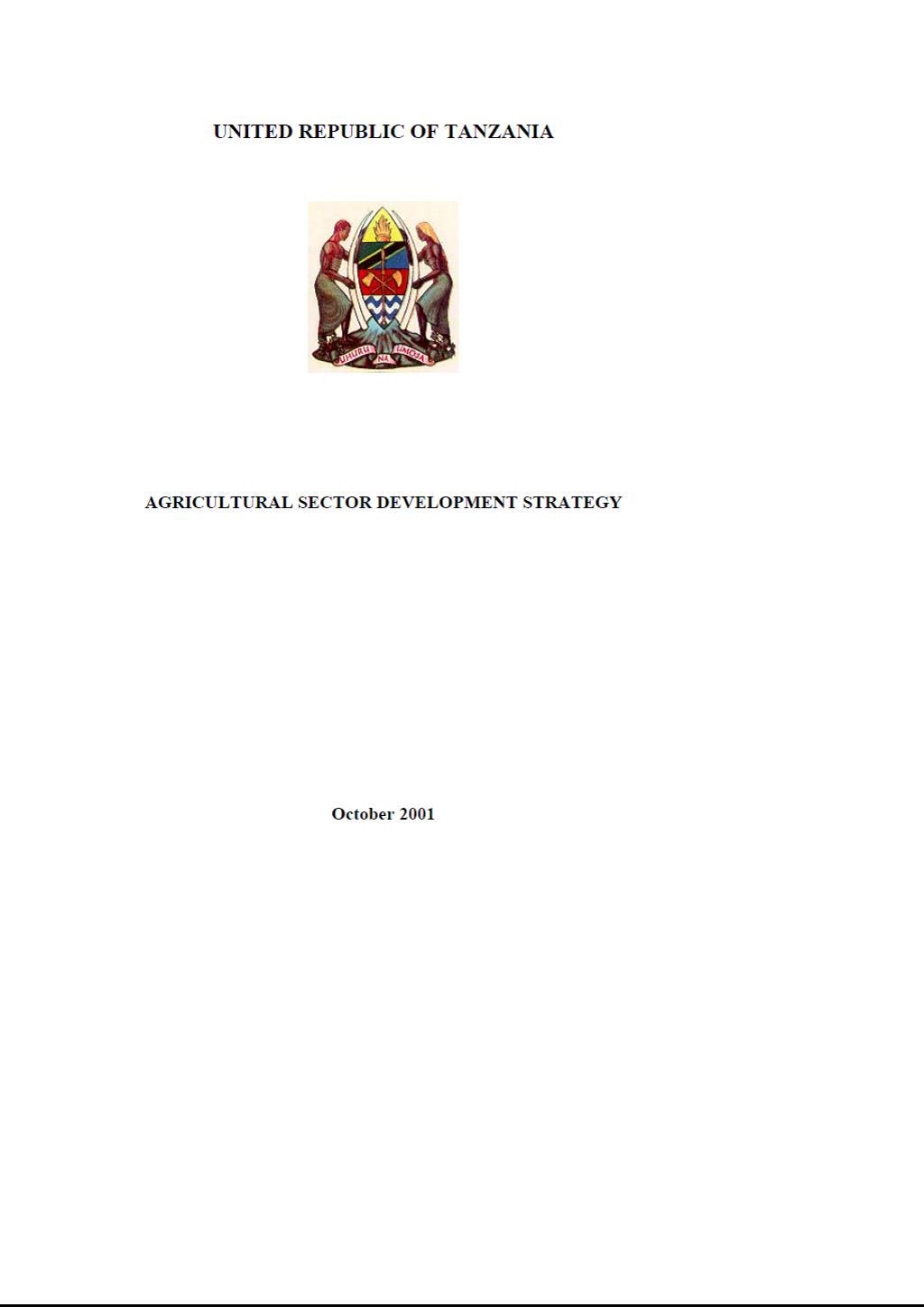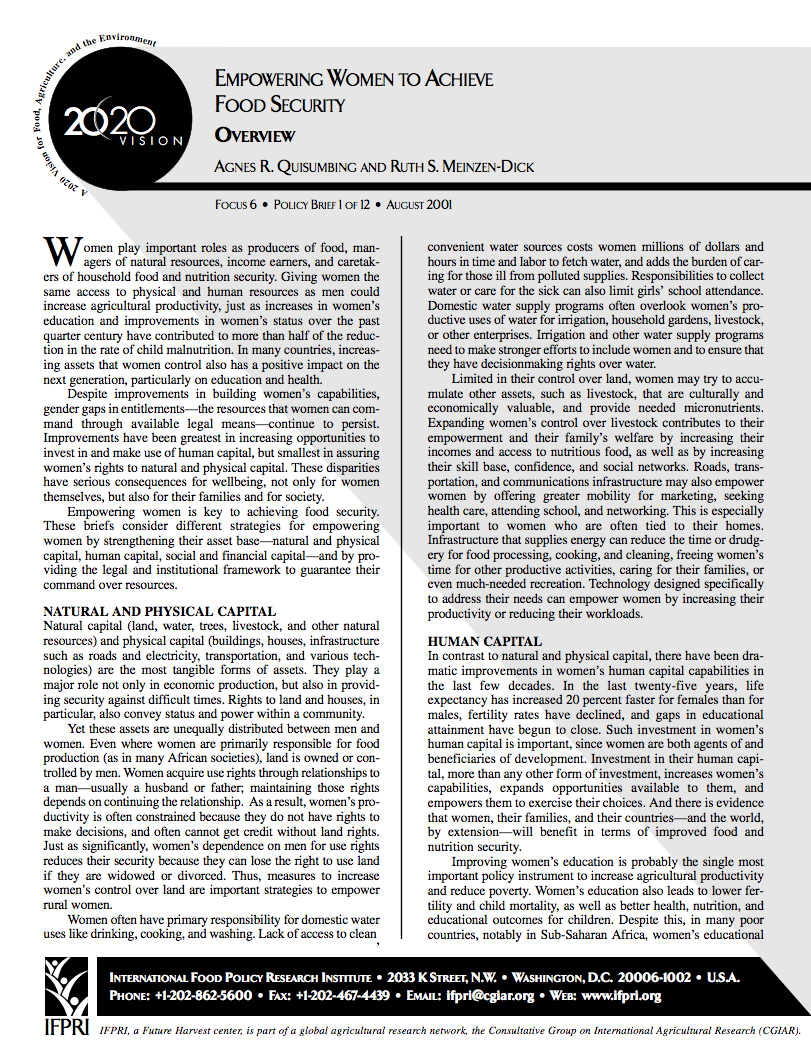The FAO-ESCAP pilot project on national water visions. From vision to action: a synthesis of experiences in Southeast Asia
Based on the FAO-ESCAP project to develop 'national water visions' in the Asia-Pacific region that would set out each country's goals for sound water management to meet the needs of all for this vital natural resource over the next two decades. Contains four Southeast Asia case studies (Malaysia, Philippines, Thailand and Viet Nam), which were carried out as part of the project and looks at water use in these countries and how they plan to fulfil their water visions.
Small Dams and Weirs in Earth and Gabion Materials
This publication is a set of practical guidelines and norms for field project engineers for the design and building of small hydraulic structures using earth and gabions. This publication would be useful in designing small earth dams with a gabion spillway, intake weirs for gravity irrigation schemes, groynes, river bed training works and for protection against hydraulic erosion.
Agricultural Sector Development Strategy
This strategy is an integral component of the ongoing macroeconomic adjustment and structural reforms that are supported by Tanzania's development partners.
Land Tenure, Title Deeds, and Farm Productivity in the Southern Province of Zambia
This study relates to an on-going debate as to whether customary African land tenure must be reformed or converted to a statutory, individualised land tenure system (often referred to as a ‘titled’ system) as a pre-requisite to agricultural development. Past arguments in favour of titling claim that traditional tenure is insecure for the small farmer and thus creates disincentives for land improvements; that it prevents land from being used as collateral for credit; and that it prevents the transfer of land from inefficient users to efficient ones.
Empowering women to achieve food security
Women play important roles as producers of food, managers of natural resources, income earners, and caretakers of household food and nutrition security. Giving women the same access to physical and human resources as men could increase agricultural productivity, just as increases in women’s education and improvements in women’s status over the past quarter century have contributed to more than half of the reduction in the rate of child malnutrition.
Water and Agriculture in the Nile Basin
This paper discusses – at the sub-basin level – the regional differences and comparative advantages for agricultural development and water resources utilization in the Nile Basin. It looks at options for development, projected in the regional context, and the importance of agricultural water use for social and food security in the different parts of the basin.
New dimensions in water security
Water, an essential component of life supporting systems, is at the forefront of discussions on global sustainability and food security. Water also has a major role in poverty alleviation and local food security. The technology for a more effective use of the resource is known but institutional reforms needed to lead the world in a positive direction are proving difficult to establish. This study was commissioned to suscitate constructive discussion around many sensitive aspects of water policy.
Wetland Development And Management In SADC Countries
One of the guiding mandates within the FAO Constitution is the following: “The Organization shall promote and, where appropriate, shall recommend national and international action with respect to: … the conservation of natural resources and the adoption of improved methods of agricultural production ...”. In many African countries, in addition to low yields, food production is limited by the availability of land and water resources.
Water Quality Management and Control of Water Pollution
In its recent examination of global water scarcity (1997) the United Nations system identified water quality as one of the key concerns in Asia in the next century. This concern is based on the fact that water quality degradation is so severe in many Asian countries that it is placing serious constraints on economic growth; it continues to be a serious problem for human health and it is causing widespread negative environmental effects.
Water as a Resource for Food Production
Meeting symbol/code: LARC 00 3
Peace Villages and Hiding Villages: Roads, Relocations, and the Campaign for Control in Toungoo District
Roads, Relocations, and the Campaign for Control in Toungoo District. Based on interviews and field reports from KHRG field researchers in this northern Karen district, looks at the phenomenon of 'Peace Villages' under SPDC control and 'Hiding Villages' in the hills; while the 'Hiding Villages' are being systematically destroyed and their villagers hunted and captured, the 'Peace Villages' face so many demands for forced labour and extortion that many ofthem are fleeing to the hills.




